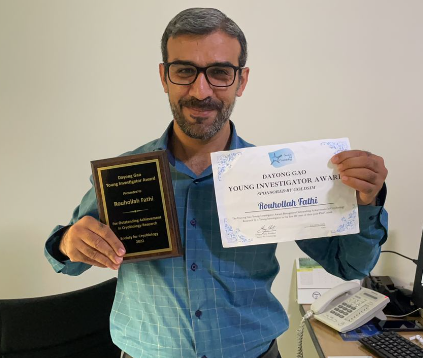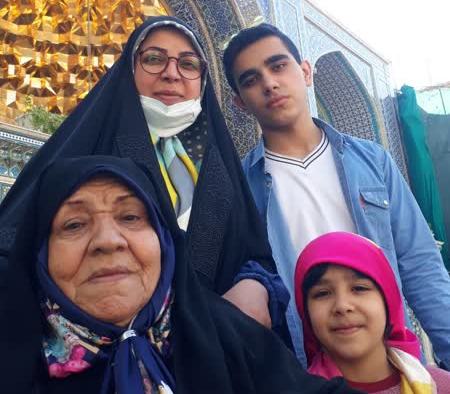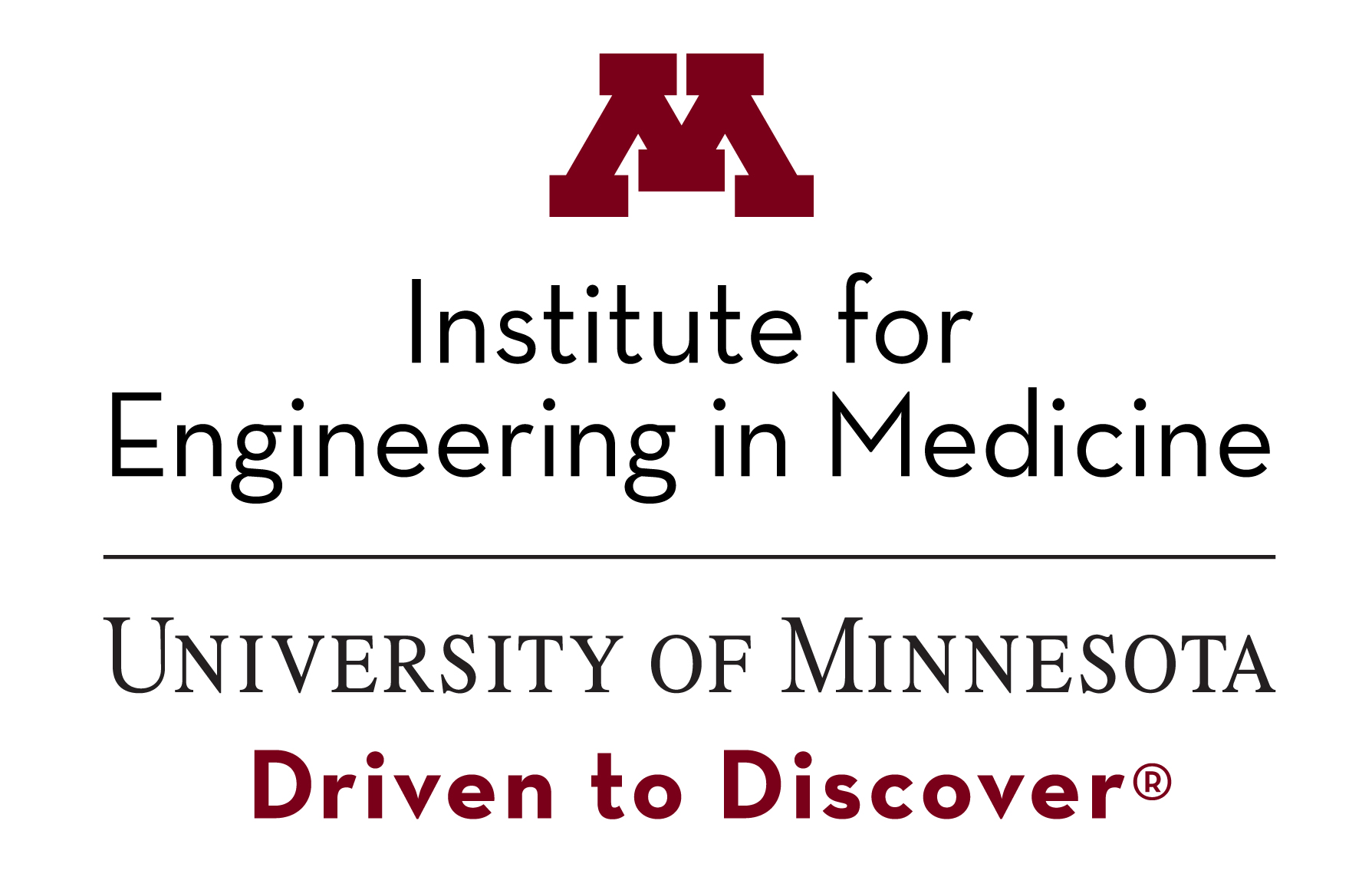Rouhollah Fathi 
The winner of the 2022 Dayong Gao Young Investigator Award, sponsored by GoldSim has been announced as Dr. Rouhollah Fathi.
Dr. Rouhollah Fathi, Associate Professor of the Royan Institute, was born in 1979 in Tehran, I.R. Iran. He completed his Ph.D. at Tarbiat Modares University (September 2013) in the field of anatomical sciences under the supervision of Professor Mojtaba Rezazadeh Valojerdi. His Ph.D. thesis was titled “Study of ultrastructural and maturation, angiogenetic and apoptotic genes expression of rat ovarian tissue after vitrification and autotransplantation." The scientific focus of his Master and Ph.D. thesis was gamete, embryo, and gonadal tissue cryobiology. Rouhollah is employed in the embryology department (oocyte biology subgroup) of the Royan Institute, conducting research in creating an artificial ovary and tissue engineering techniques for fertility preservation. He hopes to obtain a mature oocyte capable of fertilization after cryopreserved ovarian/follicular in vitro culture and transplantation. Dr. Fathi has participated in publishing over 60 national and international papers and presented more than 70 scientific abstracts and lectures in symposia and congresses.
In addition, he is currently the Deputy of Education at the Royan institute, creating and hosting scientific workshops, courses, and congresses emphasizing cryobiology. Dr. Fathi has collaborated with many cryobiology scientists and researchers worldwide including: Professor Mojtaba Rezazadeh Valojerdi, I.R. Iran; Professor Mojdeh Salehnia, I.R. Iran; Professor Jason Acker, Canada; Professor Gregory M. Fahy, USA; Professor Sherman Silber, USA; Professor Christiani Andrade Amorim, Belgium; Professor Mohammad Reza Ghalamboran, I.R. Iran; and Professor Norah Spears, UK.
Dr. Fathi has participated in the organization and facilitation of multiple events, including:
- Annual Cryobiology Symposium
- Royan GENE (Webinars)
- Cryobiology basic and clinical workshops
- Short and long term courses on cryobiology
- Technology Assisted Cryobiology (TAC) using Magnetic Field and Nanoparticles
- Nano-Cryobiology research
- Various cryobiology topics in Congresses
Technology Assisted Cryobiology (TAC)
Risk factors and their impact on fertility have resulted in research on male and female fertility preservation methods. Fields of biology, biophysics, and biochemistry have been significantly involved in developing Assisted Reproductive Technology (ART). Cryopreservation of ovarian and testicular tissues, gametes (oocyte or spermatozoa), and embryos are some of the key processes to have been developed in this field. Among cryopreserved methods, vitrification is a valuable technique that allows long-term storage of these samples. However, vitrification continues to have a few challenges as the formation of ice can introduce thermo-mechanical damage to the cell, directly or indirectly. Cryoprotective agents (CPAs) and varying exposure times have been traditionally utilized in vitrification research to decrease ice crystal formation during the freezing and warming procedures. Recent research studies are attempting to circumvent the problems associated with CPAs toxicity through techniques including volumetric heating of the cryopreserved samples and/or using anti-freeze proteins (AFPs) and nanoparticles (NPs) additives to prevent ice formation.
Recently, super-paramagnetic iron oxide nanoparticles have been added to CPAs to enhance the thermal conductivity of the samples during cryopreservation. As part of research in the Technology Assisted Cryobiology (TAC) team, Dr. Fathi's group showed that Fe3O4 NPs could improve vitrification of germinal vesicle (GV) oocytes, reduce the destructive effects of vitrification, and preserve GVs capability for subsequent development and fertilization. When compared to a control group, the number of mature oocytes and 2 pronuclear (2PN) embryo rates were found to be significantly higher in the Vitrified+NP group. Furthermore, the Fe3O4 NPs modulate the pluripotency genes expressions in 2PN embryos.
In addition to the development of techniques to inhibit ice formation during cryopreservation, there have also been studies to strengthen the cell membranes to withstand the mechanical stresses created by ice crystals. Static magnetic field (SMF) could act as a CPA in cryopreservation by influencing cell membrane stability and enhancing survival rates. These properties can be used to reduce the concentration of cryoprotectants used. We have shown that the application of 60 mT SMF preserves the mitochondrial potential activity and the ultra-structure of mouse vitrified cumulus oocyte complexes (COCs). SMF increases the embryo cleavage rate to the blastocyst (BL) stage and modulates pluripotency in BL embryos resulting from vitrified COCs.
In other ongoing work in the TAC group, the effect of moderate SMFs on frozen-warmed oocytes and intracellular calcium variability has been investigated. Fe3O4 conjugated with AFP is another work under study. The results of these studies have not yet been published. Dr. Fathi's groups hopes that applying new methods in the synthesis of nanoparticles and modern technologies will help to improve the quality of samples after warming.
Select Publications
- Design and fabrication of aspiration microfluidic channel for oocyte characterization, H Saffari, S Hajiaghalou, MA Hajari, H Gourabi, D Fathi, R Fathi –Talanta (2022), 124098.
- MII oocytes vitrification induces repair genes expression in embryos derived fertilization with DNA fragmented sperms, N Khajedehi, S Hajiaghalou, LR Ghaleno, R Fathi, H Gourabi, Reproductive BioMedicine Online (2022), 45, e16.
- Granulosa Cell Conditioned Medium Enhances The Rate of Mouse Oocyte In Vitro Maturation and Embryo Formation, Z Bahrami, N Hatamian, M Talkhabi, E Zand, DG Mottershead, R Fathi, Cell Journal (Yakhteh 2022) 24 (10).
- Vitrification of mouse mature oocyte by magnetic nanoparticles, F Baniasadi, S Hajiaghalou, M Galamboran, R Fathi, A Shahverdi, Reproductive BioMedicine Online (2022), 45, e9.
- Gene Expression Alteration of Sperm-Associated Antigens in Human Cryopreserved Sperm, S Faraji, L Rashki Ghaleno, M Sharafi, M Hezavehei, M Totonchi, ..., Biopreservation and Biobanking (2021) 19 (6), 503-510.
- Fe3O4 magnetic nanoparticles improve the vitrification of mouse immature oocytes and modulate the pluripotent genes expression in derived pronuclear-stage embryos, Y Abbasi, S Hajiaghalou, F Baniasadi, VP Mahabadi, MR Ghalamboran, ...Cryobiology (2021), 100, 81-89.
- Static magnetic field halves cryoinjuries of vitrified mouse COCs, improves their functions and modulates pluripotency of derived blastocysts, F Baniasadi, S Hajiaghalou, A Shahverdi, V Pirhajati, R Fathi, Theriogenology (2021) 163, 31-42.
- The relationship of mitochondrial membrane potential, reactive oxygen species, adenosine triphosphate content, sperm plasma membrane integrity, and kinematic properties in …, V Akbarinejad, R Fathi, A Shahverdi, V Esmaeili, A Rezagholizadeh, ..., Journal of Equine Veterinary Science (2020), 94, 103267.
- Evaluating two ovarian decellularization methods in three species, Farideh Eivazkhani, Naeimeh Sadat Abtahi, Somayeh Tavana, Leila Mirzaeian, Fatemeh Abedi, Bita Ebrahimi, Leila Montazeri, Mojtaba Rezazadeh Valojerdi, Rouhollah Fathi, Materials Science and Engineering: C 2019, 102 (670-682).
 |
 |
| Different international webinars and symposia on cryobiology at the Royan Institute |
 |
 |
 |
| 3rd Royan International Cryobiology Symposium |
 |
 |
| Professor Jason Acker visiting the holy shrine of Emam Reza in Mashhad, Iran |
Professor Jason Acker visiting the Royan Cord Blood Bank |
 |
 |
| Royan Institute cryobiologists at the University of Science and Technology of China (USTC) during the international cryobiology congress (Hefei, China) |
Professor Riazi and Dr. Mohsen Sharafi with the Royan Institute cryobiology team |
 |
 |
|
Professor Christiani Andrade Amorim at the Royan International Congress
|
 |
| Dr. Fathi’s colleagues and students at the Royan Institute |
 |
The 1st mouse blastocyst in Iran derived from oocyte vitrification using Nanoparticles (Pegah Shayegh, MSc student).
Thank you to Dr. Farzane Baniasadi for her contribution to developing this knowledge at the Royan Institute. |
 |
|
Teacher day at the Tarbiat Modarres University and the Royan Institute;
Besides Dr. Fathi are other outstanding teachers, including Professor Rezazadeh Valojerdi
|
 |
|
Dr. Fathi at the Orsala Malpighi Hospital in Bologna, Italy is standing next
to Professor Rafaellah Fabri who is preparing the human ovarian tissue for cryopreservation
|
 |
 |
| Dr. Fathi’s family |
 |
 |
| Dr. Fathi’s mother, wife (Farideh Eivazkhani, PhD), son (Mohammad Mahdi), and daughter (Fatemeh Zahra) |
|

























